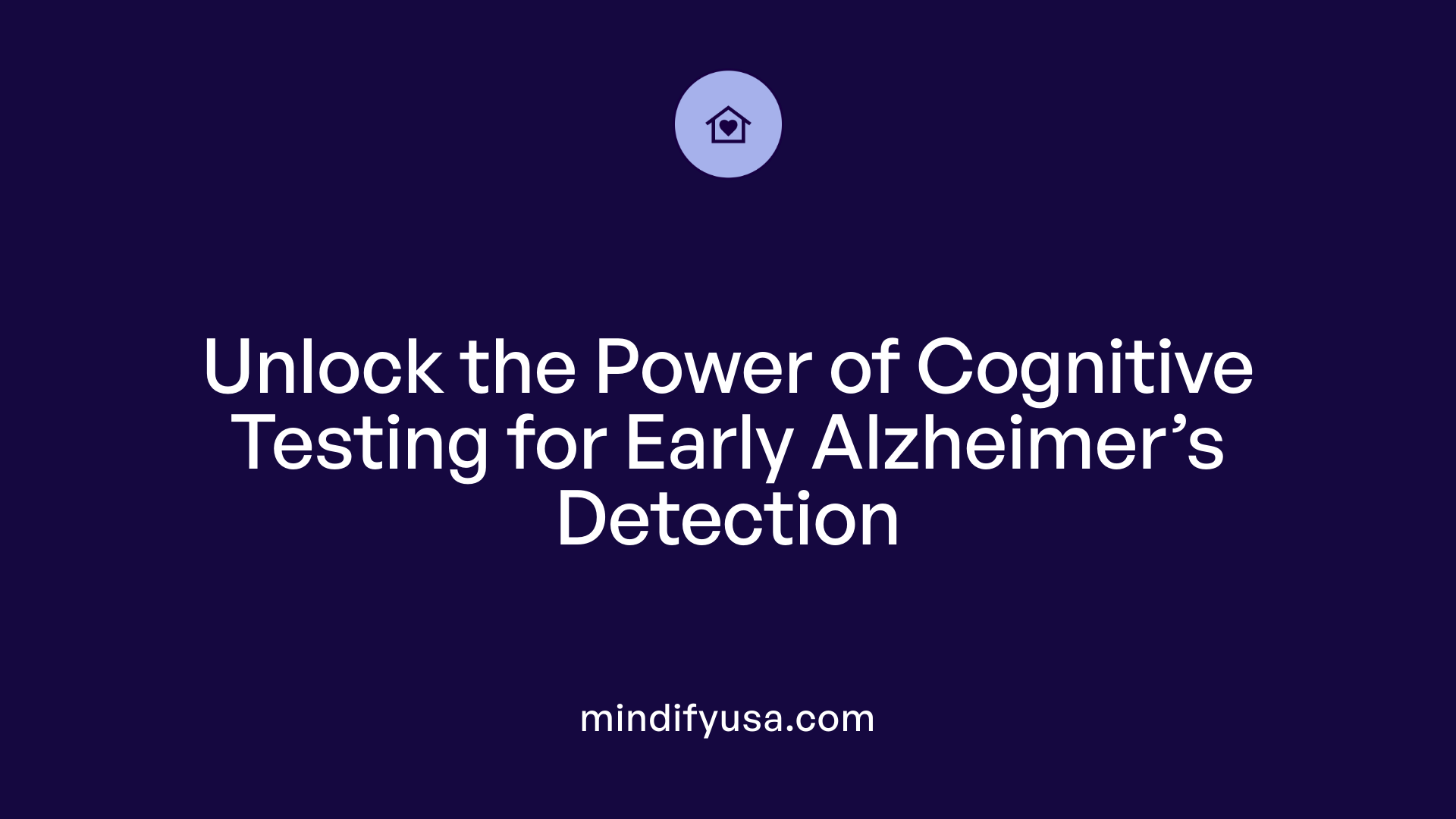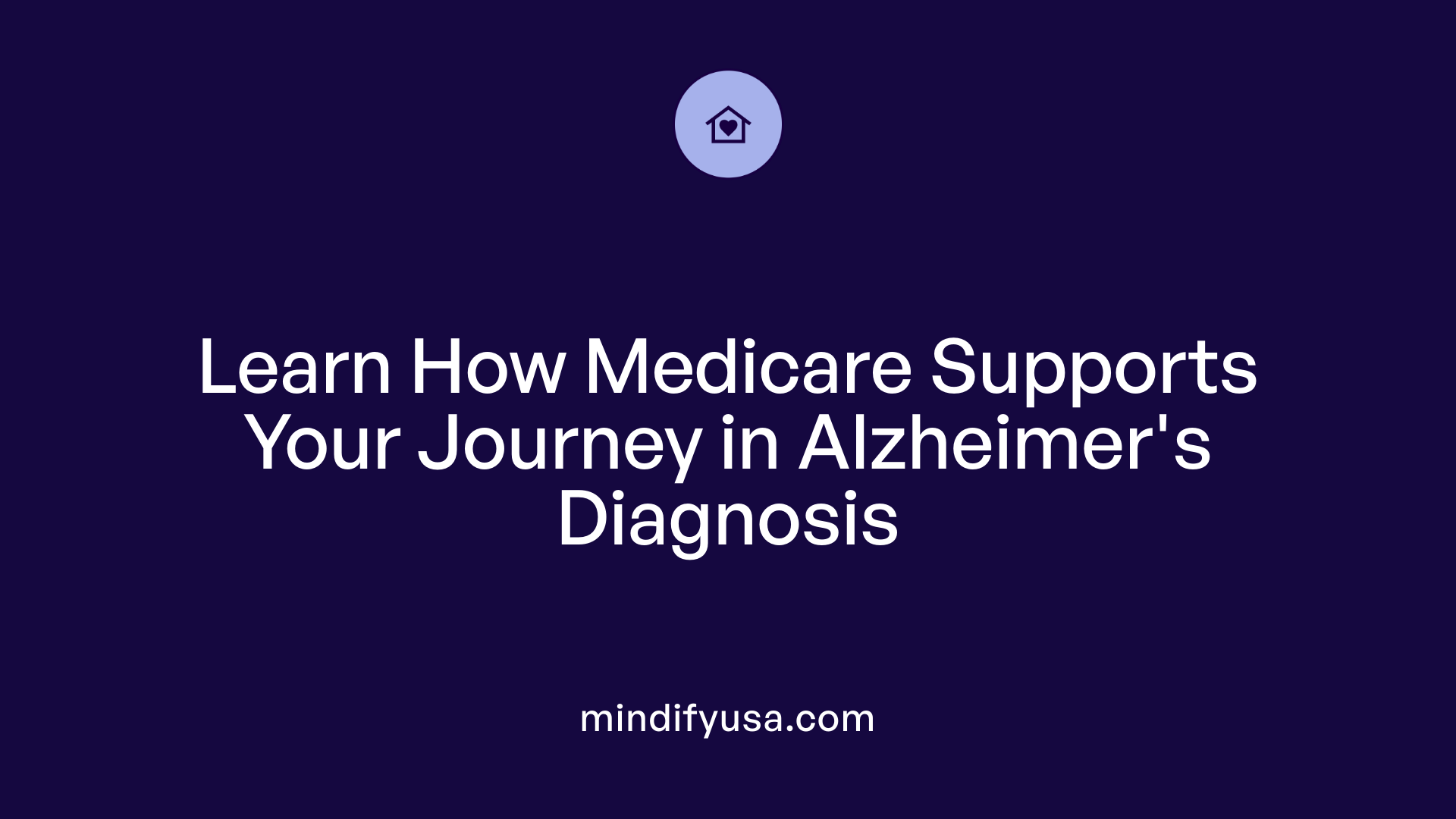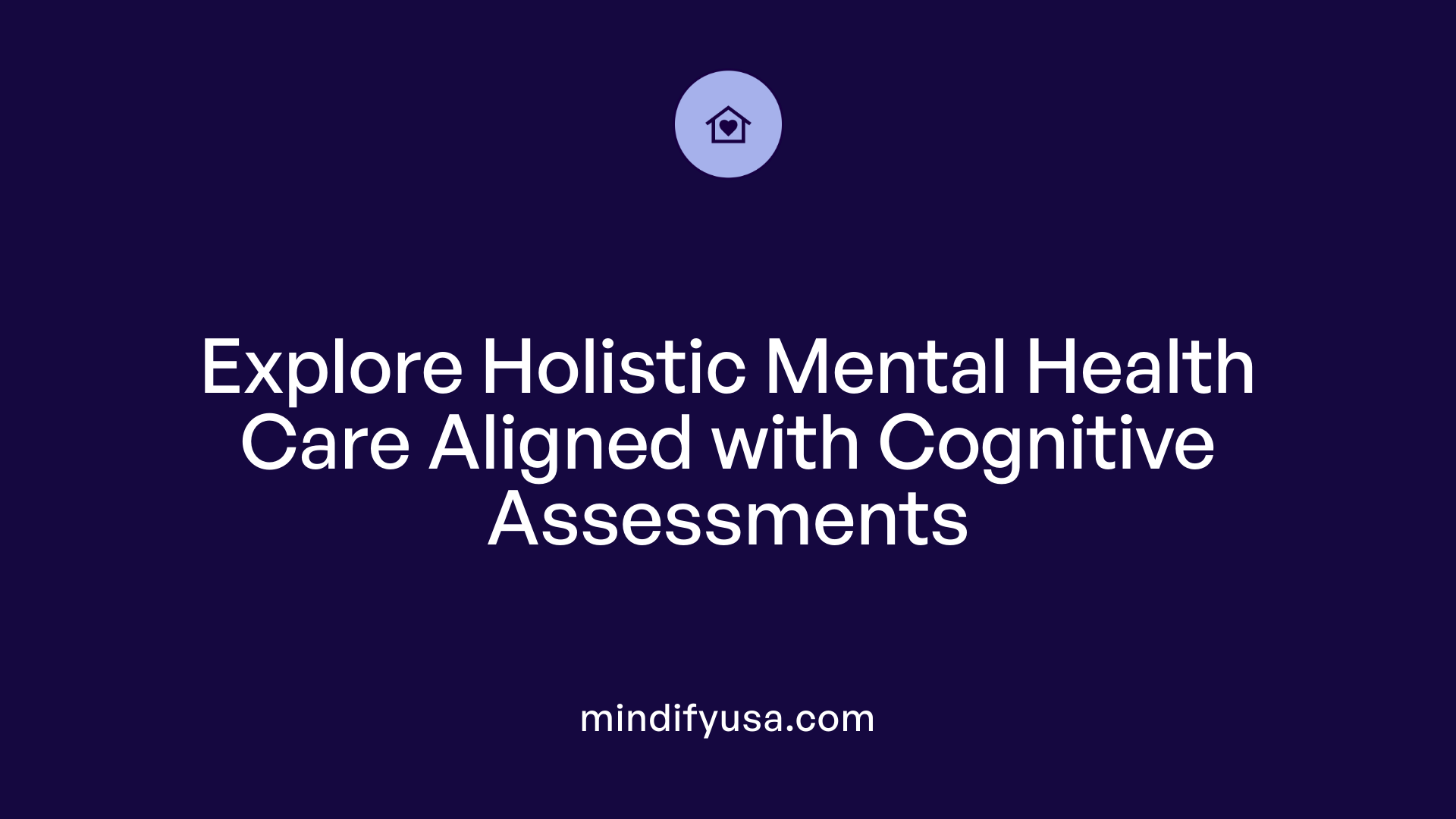Setting the Stage for Early Alzheimer's Detection
Early and accurate detection of Alzheimer's disease is critical for effective management and improved patient outcomes. Cognitive testing services play a vital role in identifying symptoms and differentiating Alzheimer’s from other mental health conditions such as anxiety and depression. This article explores the comprehensive cognitive testing services available, their integration with mental health care, and the benefits of early diagnosis for patients experiencing cognitive decline.
Understanding Cognitive Testing and Its Importance in Alzheimer’s Diagnosis

What does cognitive testing for Alzheimer’s detection involve?
Cognitive testing for Alzheimer’s detection involves a combination of standardized tests, personal interviews, and behavioral observations. These assessments focus on evaluating key functions such as memory, attention, decision-making, and concentration. Healthcare professionals, including neuropsychologists, often conduct these tests to comprehensively assess mental functioning.
Standard tests used in diagnosis
Typical cognitive assessments include IQ tests, memory evaluations, and attention-based tasks. These tests provide measurable insights into cognitive strengths and weaknesses. The findings help healthcare providers establish or confirm diagnoses of conditions like dementia and Alzheimer’s disease.
Role of psychological and neuropsychological testing
Psychological and neuropsychological testing plays a critical role in diagnosing Alzheimer’s and related conditions. These evaluations explore the relationship between brain functions and behavior using performance-based tasks—such as puzzles or quizzes—and subjective interviews. Neuropsychological assessments are particularly useful in distinguishing Alzheimer’s from other disorders, including ADHD, depression, and learning disabilities.
How testing differentiates Alzheimer’s from other conditions
Because symptoms such as memory loss and confusion can arise from various causes—including anxiety, depression, or delirium—psychological testing is vital to ensure accurate diagnoses. By differentiating Alzheimer’s from other cognitive or emotional disorders, providers can create personalized treatment plans that include behavioral therapy, cognitive exercises, or medication. Early and precise diagnosis promotes timely interventions and better long-term outcomes.
Medicare Coverage and Access to Cognitive Assessment Services

How does Medicare support cognitive testing and Alzheimer's diagnosis?
Medicare Part B offers vital support for those undergoing cognitive testing and Alzheimer's diagnosis. It covers separate visits specifically for reviewing cognitive function, confirming conditions like dementia or Alzheimer's disease, and developing appropriate care plans.
Patients have the right to bring someone with them to these appointments to provide assistance or support. This ensures that patients can communicate effectively and understand the information provided during the cognitive assessments.
Cost-wise, beneficiaries typically pay a deductible first, followed by 20% coinsurance on the Medicare-approved amount for services after the deductible is met. Understanding these costs can help patients plan for their healthcare expenses related to cognitive assessments.
Beyond direct medical coverage, Medicare supports dementia patients and their caregivers through dedicated programs, such as the Guiding an Improved Dementia Experience Model pilot program. These initiatives provide additional resources and structured support designed to improve the quality of care and daily management for those affected.
Together, Medicare's coverage, patient rights accommodations, cost transparency, and supplementary support programs form a comprehensive framework to assist individuals facing cognitive decline and related challenges.
Comprehensive Mental Health Services Complementing Cognitive Testing

Psychological and Neuropsychological Testing Benefits
Psychological and neuropsychological testing plays a crucial role in diagnosing and managing cognitive and emotional disorders. These assessments go beyond simple testing by using standardized tools, interviews, and behavioral observations to evaluate mental functioning precisely. Neuropsychological testing, in particular, helps understand the links between brain functions and behavior, aiding diagnosis of conditions such as Alzheimer’s disease, ADHD, autism spectrum disorders, and traumatic brain injuries. They enable early detection of cognitive impairments and mental health concerns, guiding timely intervention and improving long-term outcomes.
Treatment Modalities for Anxiety and Depression
Comprehensive mental health services for conditions like anxiety and depression typically integrate psychotherapy approaches such as Cognitive Behavioral Therapy (CBT), mindfulness practices, Dialectical Behavior Therapy (DBT), Eye Movement Desensitization and Reprocessing (EMDR), and medication when necessary. Providers also offer family, couples, and individual therapy, often incorporating culturally sensitive and trauma-informed care. Telehealth services enhance accessibility across regions, particularly benefiting those with mobility or geographic constraints.
Tailored Mental Health Care for Dementia Patients
Mental health care for individuals with dementia, including Alzheimer’s disease, emphasizes specialized assessment and support. Programs like the Guiding an Improved Dementia Experience pilot aim to provide both patients and caregivers with resources and tailored interventions. Neuropsychological testing supports individualized care plans to address mood instability, anxiety, depression, and cognitive decline symptoms, ensuring that treatment strategies are well suited to the complexities of dementia.
Integration of Cognitive Testing in Broader Care Strategies
Cognitive and neuropsychological assessments are integrated into comprehensive care models to better understand patients’ needs. These evaluations inform treatment plans that combine behavioral therapies, cognitive exercises, medication, and support services. The Clinic of California exemplifies this approach by offering neuropsychological assessments alongside evidence-based psychotherapy and extensive mental health services, all adapted to individual circumstances and accessible via telehealth.
What comprehensive mental health services are typically offered for treating anxiety and depression?
Comprehensive services include psychotherapy such as CBT and medication management to reduce symptoms, alongside peer support groups and holistic strategies like mindfulness and stress management to improve well-being. Trauma-informed care and telehealth enhance support for diverse patient needs. These services complement cognitive assessments, providing holistic care especially relevant for Alzheimer’s patients experiencing anxiety and depression.
| Aspect | Description | Benefit |
|---|---|---|
| Psychological Testing | Uses standardized tests and interviews to assess mental and emotional health. | Accurate diagnoses and tailored treatment plans. |
| Neuropsychological Testing | Performance-based assessments linking brain function to behavior, especially useful for neurological conditions. | Early detection and monitoring of cognitive decline and related disorders. |
| Therapy Modalities | Includes CBT, mindfulness, EMDR, DBT, and trauma-informed approaches. | Diverse tools addressing various mental health challenges including anxiety and depression. |
| Dementia-Specific Programs | Care plans and pilot programs designed for dementia patients and caregivers. | Customized support addressing cognitive and emotional complexities of dementia. |
| Telehealth Services | Remote mental health and testing services delivered online. | Increased accessibility for patients across different regions. |
Neuropsychological Assessments: Precision Tools in Cognitive Health
Role of neuropsychologists
Neuropsychologists are specialized professionals trained to evaluate the complex relationship between brain function and behavior. They conduct thorough assessments to diagnose conditions such as Alzheimer’s disease, ADHD, autism spectrum disorder, cognitive decline, and traumatic brain injury. Their expertise enables them to interpret detailed mental function test results, essential for developing personalized and effective care plans.
Performance-based testing methods
Neuropsychological assessments use a variety of performance-based tests, including puzzles, quizzes, and pencil-and-paper tasks. These activities assess cognitive domains like memory, attention, problem-solving, and reasoning. The targeted, hands-on nature of these tests provides precise insight into an individual's cognitive strengths and deficits.
Diagnosing complex conditions
Such assessments are critical in accurately diagnosing complex neurological and psychiatric conditions. For instance, they help distinguish Alzheimer’s disease from other forms of dementia or cognitive impairment caused by mood disorders like depression or anxiety. This precise diagnosis is vital to ensure patients receive the most appropriate treatment.
Monitoring and adjusting care plans
Repeated assessments allow healthcare providers to monitor the progression of conditions like Alzheimer’s disease over time. By tracking cognitive changes, they can fine-tune treatment strategies, which may include cognitive exercises, behavioral therapies, or medication adjustments. This ongoing evaluation supports improved long-term outcomes and personalized care.
How do neuropsychological assessments aid in Alzheimer's detection and management?
Neuropsychological assessments involve performance-based measures that evaluate mental functioning through tasks such as puzzles, quizzes, or paper-and-pencil activities. Conducted by expert neuropsychologists, these tests help understand brain-behavior relationships and are essential in diagnosing neurological and psychiatric conditions including Alzheimer’s disease. Repeated testing supports monitoring cognitive changes and informs adjustments to treatment plans, enhancing personalized care.
Expanding Access Through Telehealth and Specialized Care Programs

How do telehealth services improve access to cognitive and mental health testing?
Telehealth services play a crucial role in broadening access to cognitive and mental health testing across California. By offering online neuropsychological assessments and therapy sessions, patients can receive comprehensive care without geographical limitations. This approach is particularly beneficial for individuals with mobility challenges or those living in rural areas.
What specialized care programs support cognitive and mental health?
Programs like the Guiding an Improved Dementia Experience Model pilot provide additional support for dementia patients and their caregivers. These initiatives integrate cognitive assessments and mental health services tailored to the unique needs of patients with Alzheimer's and related conditions.
What types of evidence-based therapies are offered?
The Clinic of California offers a variety of evidence-based therapies including Cognitive Behavioral Therapy (CBT), mindfulness, Eye Movement Desensitization and Reprocessing (EMDR), and Dialectical Behavior Therapy (DBT). Treatments are customized to individual needs and delivered through individual, couples, or family therapy sessions.
How is culturally informed and trauma-sensitive care integrated?
Culturally informed and trauma-sensitive approaches ensure that care respects patients’ diverse backgrounds and experiences. This sensitivity enhances the effectiveness of treatment, especially in mental health services addressing anxiety, depression, and trauma among Alzheimer's patients.
What challenges and opportunities exist in delivering these services?
Challenges include navigating system failure points and ensuring consistent service quality statewide. However, opportunities for improvement arise through telehealth expansion and specialized program development, which can help close access gaps and enhance comprehensive care delivery across diverse populations.
| Service Aspect | Description | Benefit for Patients |
|---|---|---|
| Telehealth Services | Online cognitive testing and therapies accessible statewide | Removes geographic barriers, convenient |
| Specialized Programs | Dementia-focused pilot programs | Tailored support for patients and caregivers |
| Evidence-Based Therapies | CBT, mindfulness, EMDR, DBT | Effective treatment tailored to needs |
| Culturally Informed Care | Trauma-sensitive and culturally aware practices | Enhanced engagement and outcomes |
| Service Delivery Challenges | System failure points and quality assurance | Identifies areas for improvement |
| Opportunities for Expansion | Telehealth growth and program innovations | Increased access and comprehensive care |
The Future of Cognitive Testing in Alzheimer's Care
Cognitive testing services, supported by Medicare and offered through comprehensive mental health programs, form the backbone of early Alzheimer's detection and management. With advances in neuropsychological assessments, tailored therapies, and accessible telehealth options, patients benefit from precise diagnosis and holistic care tailored to their cognitive and emotional needs. Ongoing efforts to enhance access and integrate mental health services promise improved quality of life for individuals battling Alzheimer's disease and related cognitive disorders.
References
- Cognitive assessment & care plan services
- Key Benefits of Psychological Testing for Cognitive Diagnosis
- Mental Health Services for Californians with Alzheimer's ...
- The Clinic of California | Serving Northern and Southern ...
- Find Grover Beach Mental health counselors
- VA Mental Health Services | Veterans Affairs





































































































